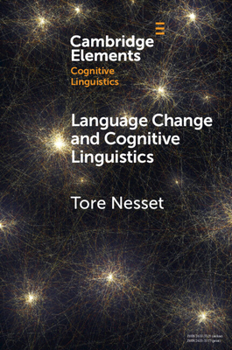Language Change and Cognitive Linguistics: Case Studies from the History of Russian
The purpose of this Cambridge Element is to bring together three subfields of the language sciences: cognitive, historical (diachronic), and Russian linguistics. Although diachrony has inspired a number of important works in recent years, historical linguistics is still underrepresented in cognitive linguistics, and the most influential publications mainly concern the history of English. This is an unfortunate bias, especially since its lack of morphological complexity makes English a typologically unusual language. In this Cambridge Element, the author demonstrates that Russian has a lot to offer the historically oriented cognitive linguist, given its well-documented history and complex phonology and morpho-syntax. Through seven case studies the author illustrates the relevance of four basic tenets of Cognitive Grammar: the cognitive, semiotic, network, and usage-based commitments.
Format:Paperback
Language:English
ISBN:100901353X
ISBN13:9781009013536
Release Date:December 2022
Publisher:Cambridge University Press
Length:88 Pages
Weight:0.28 lbs.
Dimensions:0.2" x 6.0" x 9.0"
Related Subjects
Language ArtsCustomer Reviews
0 rating





